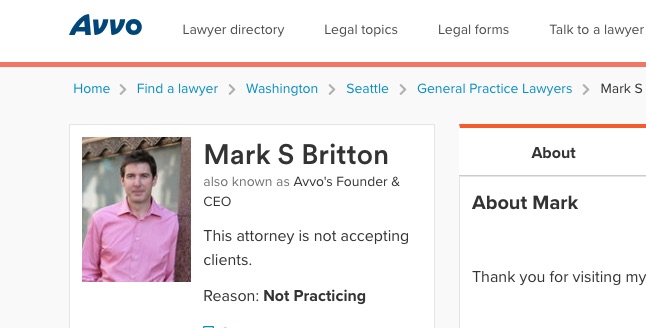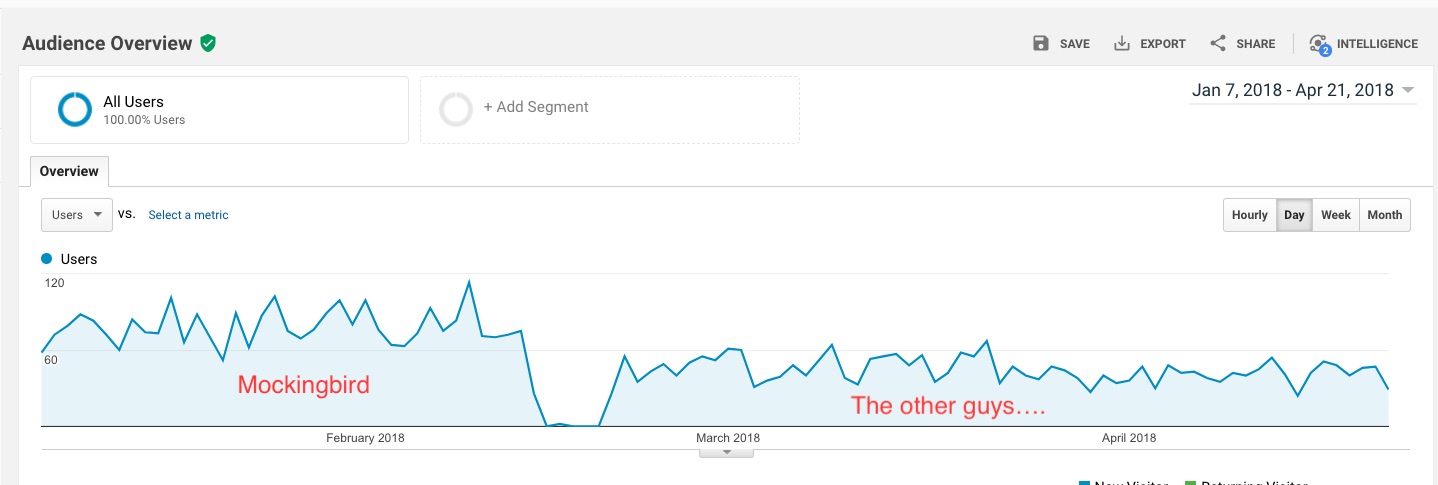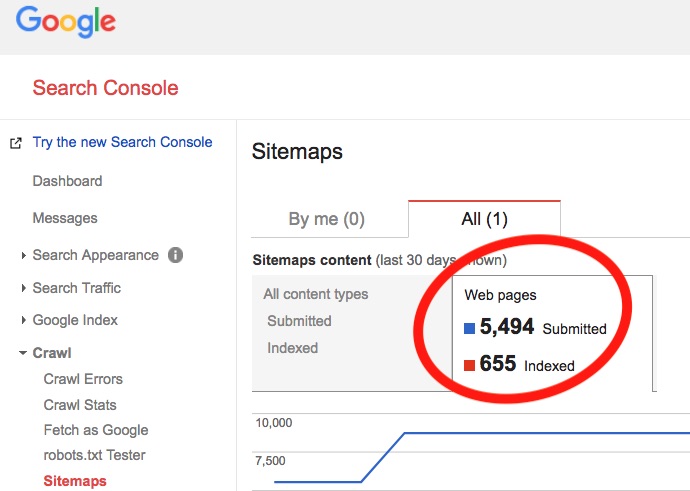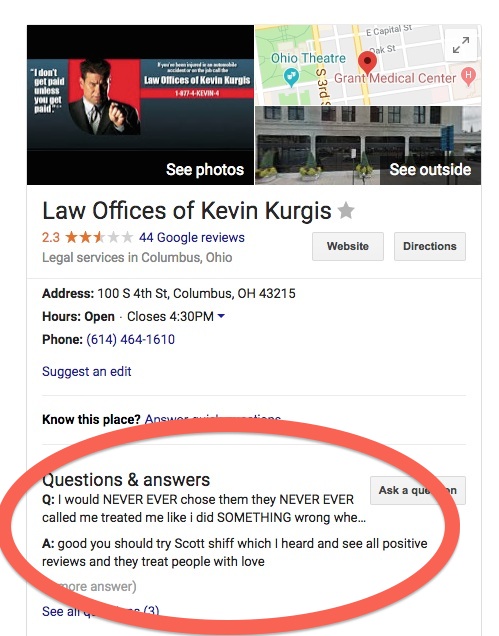I’ve been writing about how Google doesn’t care about your “fresh” content for ages now. Mockingbird’s analysis of hundreds of thousands of pages of legal content (and I use the term “content” liberally here) across hundreds of law firm websites have confirmed this.
And yet, the legal marketing industry keeps telling you to publish publish publish in order to make The Google happy. As an industry, it’s super convenient to blame our failings on your lack of feeding the content beast. Or, it’s super convenient to have contracts that promise we’ll vomit out poorly rewritten news articles at a pace of X per week. Tangible, predictable projects to validate a bloated retainer that funds an offshore “writer” at exorbitant margins. One vendor claims as their tagline: “real lawyers have blogs” – as in, you aren’t a lawyer unless you feed The Google a steady diet of (largely unread) blog pages.
Except of course, all of this focus on bloated website pagecount rarely translates to increased traffic, calls or clients. That’s because of the fallacy that the frequency of publishing is a major SEO factor. You may have also heard this referred to as “fresh content.” The reality is, there are some industries (legal being one of them) in which “fresh” content isn’t necessarily better. i.e. It’s very difficult to have fresh content about trucking accidents on a regular basis.
But, like lemmings intent on a final trip to the sea, the legal marketing industry keeps reciting the mantra: “content is king.” We keep pushing you to sign engagements in which we promise we’ll deliver 4 blog posts a week. (and if 4 is good, wouldn’t 40 be better? Can I get a 104?) We wax poetic about the long tail and the need for more and more content to catch this elusive tail. We tell you that Google wants your content to be fresh as a baguette at a quaint French cafe at 6am.
Finally, straight from The Google’s mouth, the answer to the question: “Does Google favor fresh content?” in two characters:
Hat tip to Barry Schwartz (who apparently has more time to follow John Mueller, than I do.)
If you feel like diving deeper, feel free to peruse any of the following articles I’ve penned panning our myopic love of content:
SMX: More content, less traffic
SMX: More content, less traffic: Part II
Mockingbird: SEO Regicide, Content the King is Dead
Mockingbird: Another Indicator that your “SEO Content” is Awful
Mockingbird: Your Legal Blog Content isn’t as Good as you Think it is.







